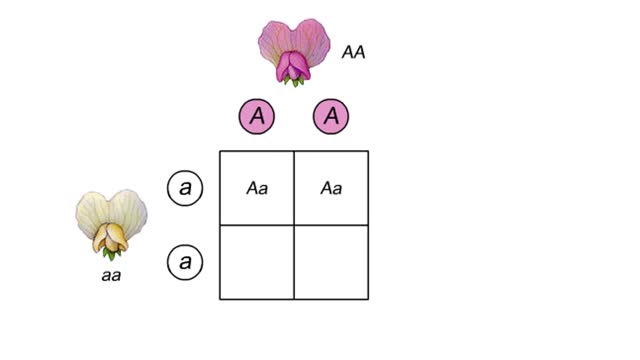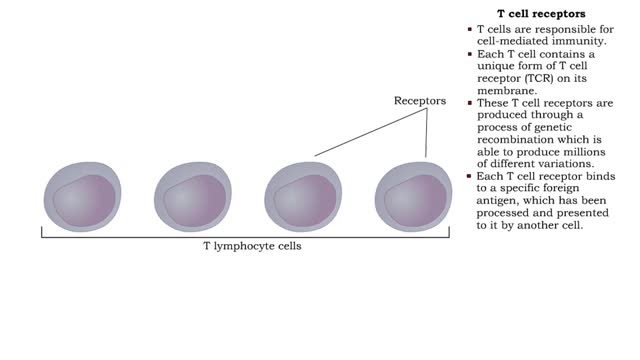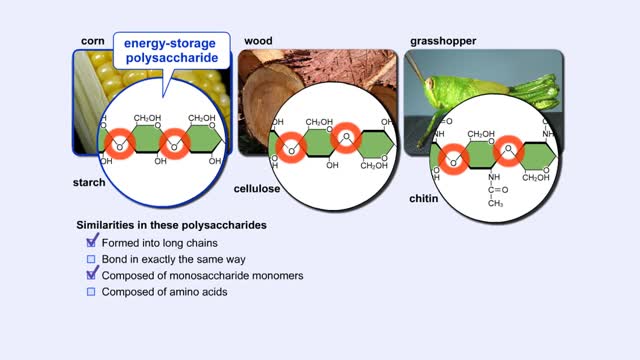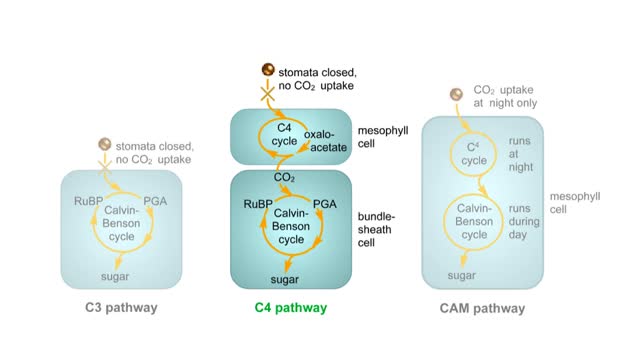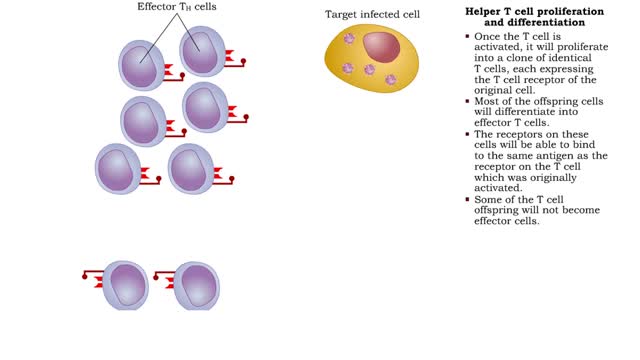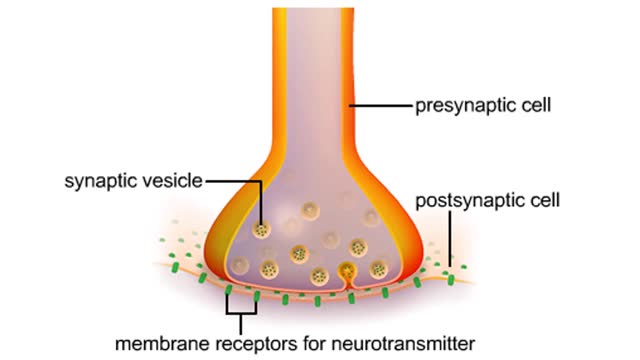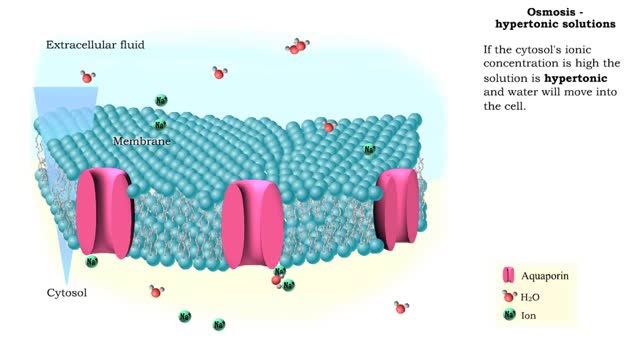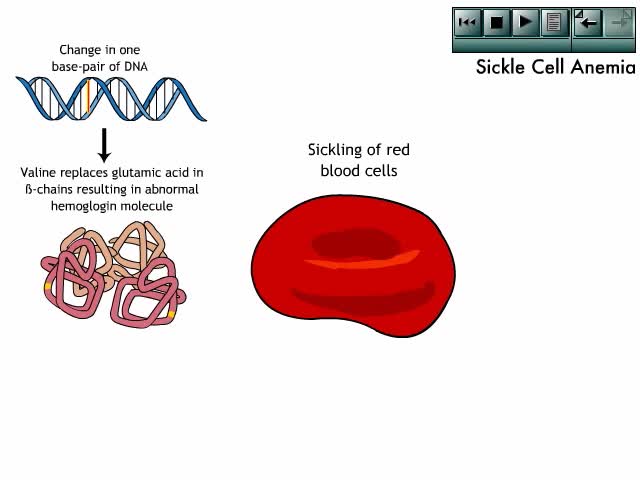Search Results
Results for: 'plant cell'
By: HWC, Views: 9619
A monohybrid cross is a cross between two parents that breed true for different versions of a single trait. In this example, that trait is flower color. The allele that specifies purple flowers is dominant over the allele that specifies white flowers. The purple-flowered plant has two domin...
By: HWC, Views: 11358
• T cells are responsible for cell-mediated immunity. • Each T cell contains a unique form of T cell receptor (TCR) on its membrane. • These T cell receptors are produced through a process of genetic recombination which is able to produce millions of different variations. • Each T ce...
By: HWC, Views: 11334
More complex sugars are called polysaccharides (from "poly" meaning "many" and "saccharum" meaning "sugar"). Many things in nature are made of polysaccharides. Here we show one of the polysaccharides in corn, another in wood, and another in the exoskeletons of insects like grasshoppers. How are a...
Photosynthesis and Van Helmont Experiment
By: HWC, Views: 10967
All energy on Earth comes from a star, the Sun. Light must travel 160 million kilometers to reach Earth where plants capture this light energy and convert it to chemical energy in the form of sugars. This biochemical process is called PHOTOSYNTHESIS. The summary equation for photosynthesis is ...
Carbon fixing adaptations Animation
By: HWC, Views: 5940
Different plants trap carbon by different pathways. Most C3 plants evolved in moist, temperate zones. On hot dry days they close their stomata to conserve water and oxygen accumulates. Under these circumstances, the enzyme rubisco uses oxygen in an inefficient reaction that competes with t...
Helper T cell receptors, activation, proliferation, differentiation & action
By: HWC, Views: 11947
• Most cells which have CD4 on their surface become Helper T cells (TN cells). • The CD4 1 cells only recognize a foreign antigen when it is presented with an antigen presenting immune cell (APC) that includes MHC-II protein. • The Helper T cell antigen receptor must match the presented...
By: HWC, Views: 9155
A neuromuscular junction is a chemical synapse between the axon endings of a motor neuron and a muscle cell. A narrow synaptic cleft separates the presynaptic cell (the motor neuron) from the postsynaptic cell (the muscle cell). The presynaptic cell contains vesicles filled with neurotransmitt...
Osmosis - Isotonic, Hypotonic, and Hypertonic Solutions
By: HWC, Views: 11809
Isotonic: Equal Water moves in and out of the cell at an equal rate. The cell remains unchanged. Hypotonic: "hypo" hippo Water moves into the cell, making it swell and get fat (like a hippo). Eventually the cell can rupture and burst (aka lyse). Hypertonic: "like a raisin" Water leaves...
By: Administrator, Views: 14720
The clinical manifestations of sickle cell anemia result from pathologic changes to structures and systems throughout the body.
Advertisement



